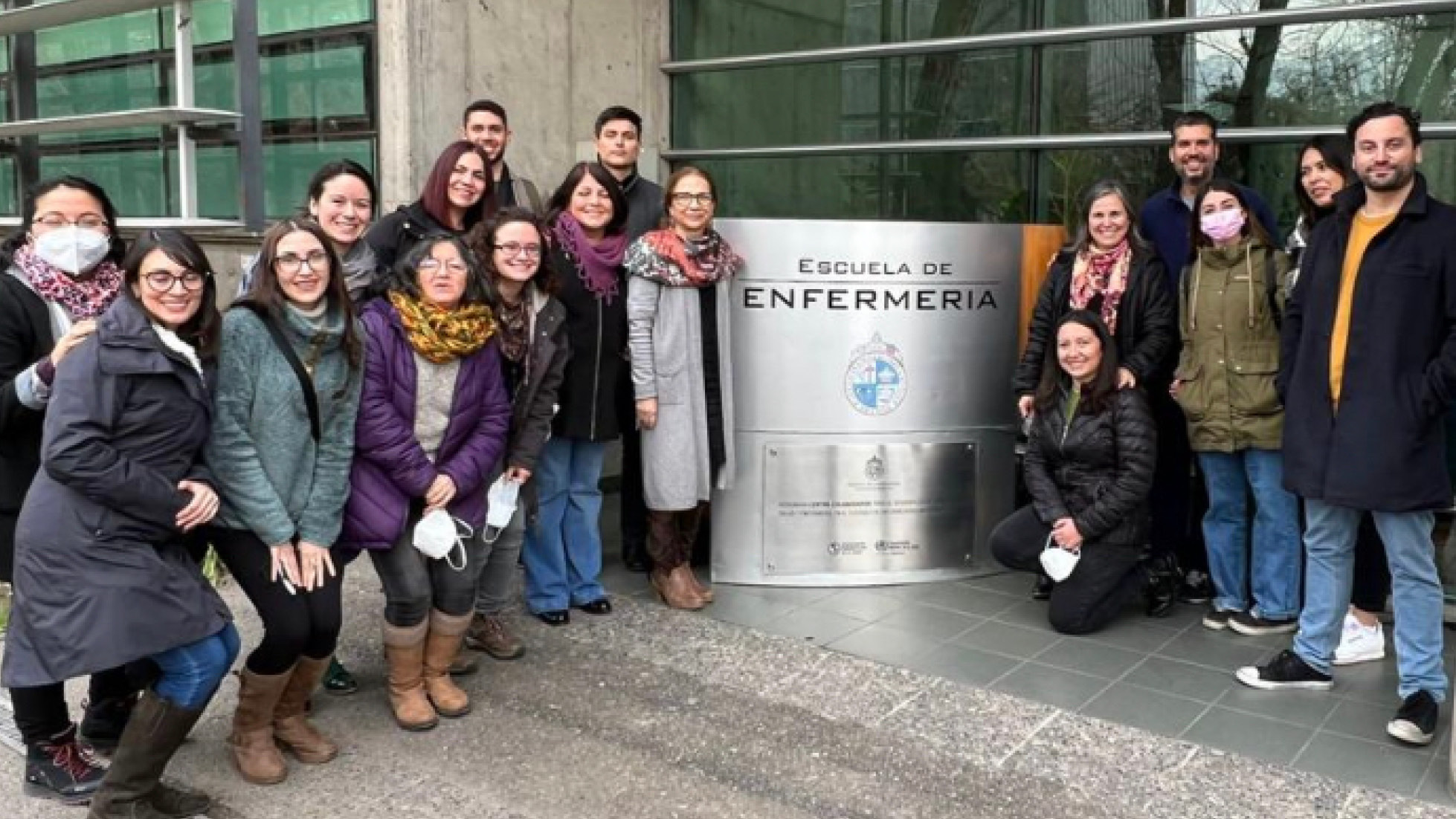Until this year, there were no official programs preparing nurse practitioners (NPs) in Latin America. Now, with help from U.S. institutions like the University of Miami School of Nursing and Health Studies (SONHS), 14 oncology nurses in Chile are well on their way to becoming their country’s—and continent’s—first homegrown NPs.
After a small but successful pilot, the Pontificia Universidad Católica de Chile (UC) nursing school in Santiago welcomed its inaugural NP students. At the invitation of Lilian Ferrer, UC Santiago’s vice dean of international affairs, SONHS associate professor Juan M. González taught advanced pathophysiology in the new program’s first semester.
“This is the first program in Chile where they are officially and formally educating students into the role of the nurse practitioner,” explains Dr. González. “There’s no other program like it in Chile at the moment.”
The bachelor's degree in nursing is a five-year program in Chile; there are graduate programs as well, but until recently none for advanced practice nursing. “The role doesn’t officially exist there yet,” says González, a Fellow of the American Association of Nurse Practitioners.
UC pioneered its program with oncology nurses in response to a call from the government to increase health services for cancer patients. “The whole idea is to narrow the gap that exists in access to oncology services and increase capacity for diagnosing, treating, and following up with patients who have oncological issues,” notes González. He believes other universities in the region will soon follow UC’s lead.
In the U.S., the proliferation of over 355,000 licensed NPs and 400 NP academic programs has helped improve access to high-quality health care, especially in rural and lower-resource areas.
From Idea to Reality
The historic launch of Chile’s first official NP program comes after years of advocacy, consultation, and collaboration between Dr. Ferrer, SONHS faculty, and other institutions designated as nursing collaborating centres by the Pan American Health Organization (PAHO)/World Health Organization (WHO).
SONHS Professor Johis Ortega, longtime Collaborating Centre director and associate dean for Hemispheric and Global Initiatives, is among those who worked with Dr. Ferrer on this effort. “I am thrilled this program has come to fruition, and I applaud Dr. González’s valuable contributions as a clinical educator,” says Dr. Ortega. “This is a great example of strategic hemispheric collaboration with our PAHO partners. I am proud we could contribute to this one-of-a-kind, first-in-the-country program, which will increase critically needed access to high-quality patient-centered care and nurse practitioner education in Chile.”
For González, a seasoned educator and native Spanish speaker, the teaching opportunity proved equal parts exciting and nerve-wracking. “I’ve taught a class here and there abroad in Spanish, but this was teaching very in-depth content to a highly qualified group of individuals in Spanish 3 hours every week for 16 weeks,” he says. “I read the textbook cover to cover in English, and then read it in Spanish and rehearsed the words and pronunciations to give a lecture that was fluent. I did more than I normally would to prepare because I knew how important this would be. I wanted to set the example for this program and others to come.”
His preparation paid off. “I was impressed with the strong academic caliber of the student body and faculty,” he says. “I was excited to see the role of nurse practitioner being expanded and going into Latin America, where I know there is a need for it.”
Modeling the Future
González credits SONHS Dean Cindy L. Munro, as well as UC nursing school’s outgoing and incoming directors (deans), María Isabel Catoni Salamanca and Camila Lucchini Raies, respectively, and post-graduate director María Cecilia Arechabala for their crucial support throughout the process.
He also worked closely with program director Francisca Marquez Doren and on-site program liaison Magdalena Correa Duque, who earned her advanced practice nursing degree in the U.S. last year through a related collaboration between UC Santiago and Boston College.
“Magdalena was integral to the success of this course,” says González. “She knows the culture, the faculty, the students, and she provided a lot of really good feedback.”
For their last class, González was finally able to join all of his students in person on their Santiago campus. While there, he led simulation activities designed to reinforce key ideas and skills.
“This was the first time most students at the graduate level had done any kind of simulation, and it was an important step to bring to light what advanced practice nurses really do, to help them conceptualize the NP role because it’s new in Chile,” says González. “I imagine we’ll be using this model again as other programs in Latin America start to develop their own NP programs."
First Nurse Practitioners Educated in Chile

